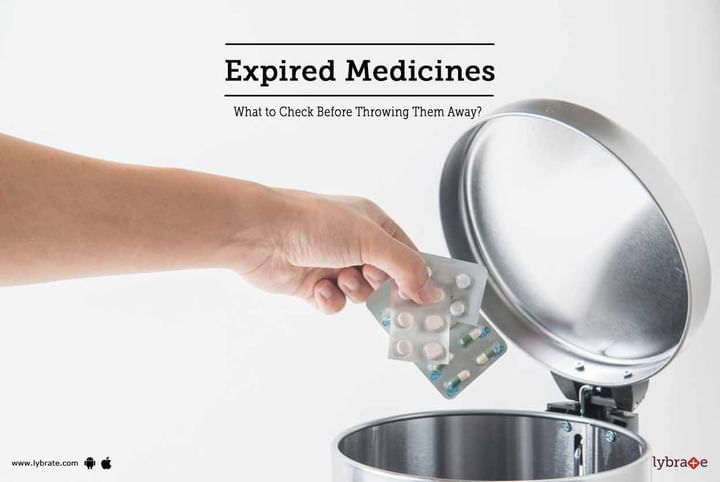Expired Medicines - What to Check Before Throwing Them Away?
When it comes to health, there is no taking a chance. Most of us are in the habit of storing some medicines at home, which could come in handy, say for a headache or an acidity attack. However, these often remain in the medicine kit for a long time before they are actually used. So, finally when the day arrives when there is an actual need for it, we are not sure if it is still usable. The one thing we dread is the use of a medicine, which is past its expiry date.
What if there is an adverse event? What if there is a complication or a side effect?
Then, if we are not in a position to get a fresh pill, we would rather endure the pain or acidity than pop that outdated pill. Is it really prudent to do so? I say otherwise. Most medicines have the expiry date to indicate the date or time, until when the drug would have the most potency and efficacy. Meaning to say, the drug may become weak (take longer to act or may require more of the drug to produce the same effect) when taken after the listed expiry date.
The truth is that most pharma companies list a date, which could be months, if not years, ahead of the actual expiry date. In reality, a drug never really expires. Most medicines can be used up to a few months after this date. Some medicines may even be useful after years of their expiry date.
It depends as to what the medicine is for:
- Painkillers are usually harmless to take beyond the expiry date. If there is no effect (even prolonged), then try to get a fresh one.
- Chronic medications like anti-hypertensives and anti-diabetic medications can be used up to a few months at the most, not beyond. Make sure to monitor readings to check for the efficacy. Often times, a greater dose may be required to get the desired effect, but this should not be done without medical supervision.
- Biologic products like EpiPen, eye drops or injectable substances should not be used, if they are cloudy. In fact, most of these should be kept for a very short period after opening.
- With any expired medicine, keep your doctor posted, especially your chronic meds to seek further advice and information.
The place and the way the drug is stored also may help in retaining its strength. A drug stored in the fridge is safer than something stashed away in a cupboard with a lot of other things. Keep these in mind, and take a call! If you wish to discuss about any specific problem, you can consult a doctor.



+1.svg)
